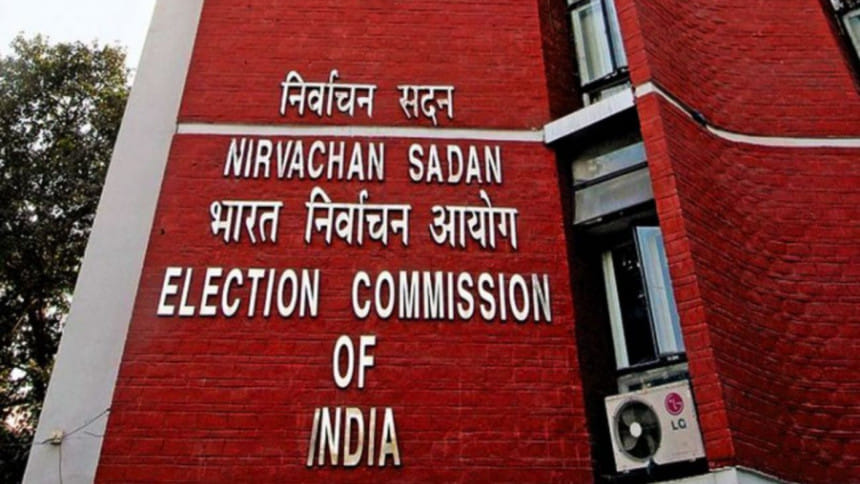Election Oversight in India: Some lessons to be learned

On March 9, the Election Commission of India (ECI) announced Lok Sabha polls to be held in seven phases on April 11, 18, 23, 29, and on May 6, 12, 19. However, counting of vote will be conducted on May 23. Indian elections have always been a much-talked-about issue among election commissioners, election experts and other electoral stakeholders as they are the biggest democratic elections in the world. India held the first-phase elections on April 11 in 96 constituencies with 1,279 contesting candidates.
During Indian elections, the ECI becomes the "de facto government". The country does not instill a caretaker government; instead, the full outgoing cabinet remains in power although the parliament is dissolved. Only the chief election commissioner can be removed through impeachment in parliament, but his two colleagues can be removed by the government on the recommendation of the chief election commissioner. Moreover, although the ECI is independent which is guaranteed by the law, its secretariat is not completely independent from government control. Additionally, the poll panel does not have absolute financial freedom as its budget/expenditure is not charged on the consolidated fund of India. Thus, the question is: how does ECI establish control over the election administration?
First, the ECI exercises total control over temporary officials involved in the elections directly or indirectly, even though all those officials are not their "employees". Generally, deputy commissioners, collectors, district magistrates, and additional district magistrates are recruited as returning officers to conduct elections at the constituency level. But, before making the appointments, the background of these officials is scrutinised by the ECI and it purges the entire state machinery of political bias by ordering transfers and postings following its own assessments of each individual functionary or in response to complaints. Moreover, the commission invites every party individually in every area and each of them gives the ECI their list of suspected, biased functionaries. ECI acts after the inquiries.
Second, ECI postpones/cancels elections if their credibility is compromised or if its orders are not implemented by the government. Examples since the first election in India include: in 1992, TN Seshan cancelled the Punjab assembly elections a few hours before the polls, spurring the governor's resignation, and in 2014, the ECI threatened to put off polling in the West Bengal constituencies where it had ordered a district magistrate and five SPs to be transferred, if chief minister Mamata Banerjee failed to implement the transfer orders.
Third, the ECI not only recruits the best and neutral officers but also cuts the link between the bureaucracy and the government. No minister or chief minister is allowed to call them for a meeting. The ECI can suspend them if it comes to know that the chief minister has talked to them over the phone. Senior police officers and civil servants are transferred even on minor counts of what the Commission considers misdemeanours; governors and senior ministers are handed out censures without any second thought.
Fourth, the ECI itself enquires into any allegations of procedural irregularities or violations of electoral law; to do so, the poll body depends on the chief electoral officers of the states who are selected and appointed by the ECI from a shortlist of federal civil servants posted to the state drawn up by the state government. The chief electoral officers may not be dismissed by the government without the approval of the ECI. TN Seshan, who was the chief election commissioner in 1990-96, through the chief electoral officers, reviewed more than 40,000 cases of election irregularities and disqualified around 14,000 candidates for public offence. Before the first phase of the election, the ECI has filed a huge number of complaints and 44 of those complaints were filed against Tamil Nadu's political parties for committing various electoral offences during March 9-27.
Fifth, once the election machinery is set in motion, the electoral process is subject to the administrative supervision of the ECI, and no court of law can stop or intervene in the process in any manner. The constitution guarantees this non-interference that many subsequent court rulings have further reinforced. In India, an election petition can be presented to the High Court only after an election is concluded.
Finally, the Commission in India does not rely on the army for assistance during an election. It instead lists police, paramilitary and other armed forces for assistance and once they are assigned, they come under the Commission's "command".
Although sometimes questions on the neutrality of the ECI are raised, mainly by the politicians, since its independence in 1947, India has seen a number of genuine democratic elections and the ECI has been successfully administering, managing and conducting them. The supreme power of ECI is that it is politically independent and it can thus focus on conducting free and fair elections. No wonder the ECI is known as the "fiercely independent" election commission around the globe.
Dr Md Abdul Alim is the Senior Director of Election Programmes, Democracy International.





Comments